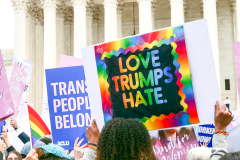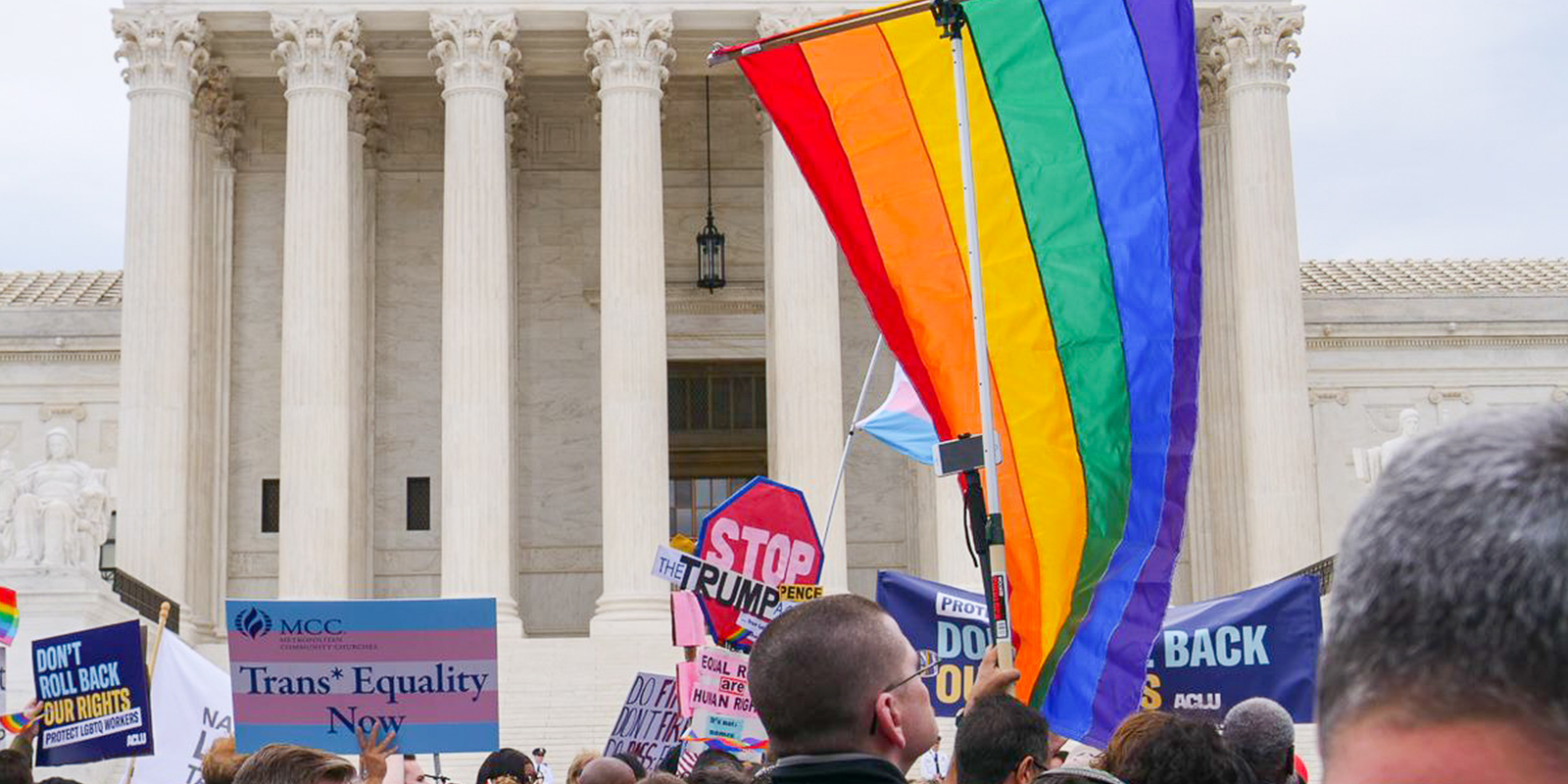AFSCME members stood on the steps of the Supreme Court this morning to support the LGBTQ community as the court heard three cases centered on the question of whether it is legal to fire someone for being gay or transgender.
During the “Don’t Roll Back Our Rights Rally,” members of the LGBTQ community and a broad coalition of allies, including labor unions, spoke out to ensure that the protections guaranteed under the 1964 Civil Rights Act, which forbids discrimination on the basis of sex, extends to gender identity and sexual orientation as well. The question of whether or not someone can be fired for being gay or transgender is, surprisingly, not settled, hinging on how the word “sex” is interpreted.
The rally, which was organized by Pride@Work, a nonprofit organization that represents LGBTQ union members and their allies, also highlighted attacks made by President Donald Trump’s administration, including a recent Department of Labor rule change, which makes it easier for federal contractors and subcontractors to remove protections for LGBTQ workers under the guise of religious exemptions.
In a recent comment letter submitted to the Office of Federal Contract Compliance Programs, AFSCME argued strongly against the DOL changes under consideration, while reinforcing its commitment to the rights and dignity of members of the LGBTQ community.
“AFSCME’s commitment to equal opportunity manifests in the principles we adhere to, the work we do and the results AFSCME and its members deliver every day,” the letter reads. “It is embodied in AFSCME’s constitution, in which the first clause of our Members’ Bill of Rights guarantees individuals will be accepted into membership ‘on a basis of unqualified equality,’ without regard to race, creed, color, national origin, ethnicity, sex, age, sexual orientation, gender identity or expression, disability, immigration status, or political belief.”
During its 43rd International Convention, AFSCME adopted a resolution (No. 14) protecting the rights of transgender and gender nonconforming people, and has been a steadfast ally for LGBTQ rights.


